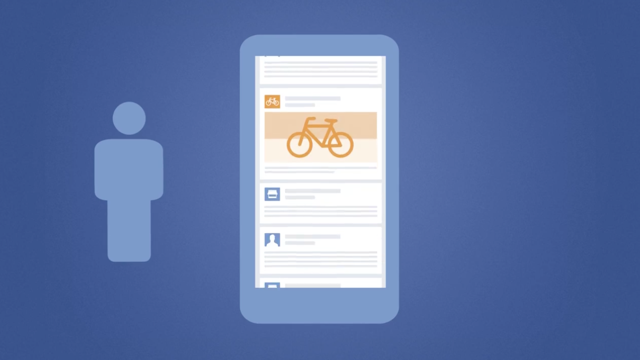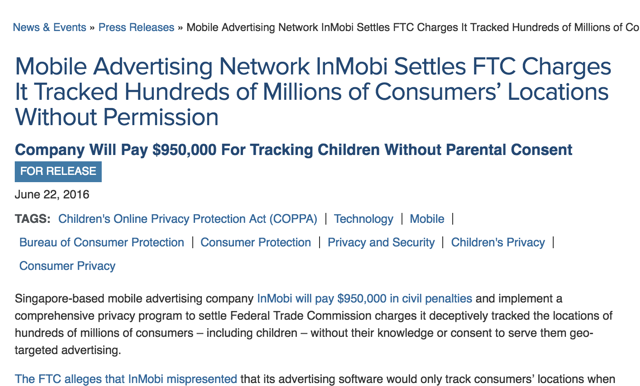If you pay any attention to tech or security news, you know that your data is being collected. Your internet service provider (ISP) is probably collecting your data, online retailers are collecting a huge amount of information, and the NSA and GCHQ have eyes everywhere. But there are still a few kinds of data collection that you might be surprised to hear about. Here are a few examples that might make you nervous.
Facebook Selling Your Location Data to Stores
The recently announced Location Awareness program allows Facebook to see where you go, and use that data how it sees fit. Cincinnati TV station WCPO reported that the data would be sold to stores that you've gone to, and that has some people worried about their privacy. It's only a matter of time, says a quoted ad exec, until you get notifications based on the stores you walk into; maybe it'll tell you that a friend of yours has been there recently, or that there's a sale happening on one of your favored products.
Although Facebook says that the data sold to stores is anonymized, and that it's used to serve location-based ads, it's still a little concerning, as it means Facebook knows where you are and is selling that information. While a lot of people are happy selling their personal information for better ad-targeting, not everyone will be happy to hear about this.
Recording Your Conversations on Public Transit
A recent article on NJ.com revealed that New Jersey Transit not only records conversations that passengers have on light rail trains, but that they keep them on file for a month before discarding them. It's a rather Orwellian proposition, and the fact that NJ Transit recently denied a public records request for their policy on surveillance on the grounds that such a policy didn't exist only adds to the conspiratorial vibe.
After criticism by civil rights advocates, NJ Transit finally revealed that the information could be shared with police for "limited investigative purposes," though what that means is anybody's guess.
Location Data Collected Despite Opting Out
The US Federal Trade Commission recently fined InMobi, a Singapore-based advertising company, $950,000 for tracking mobile phone users without their consent. The FTC said that InMobi misled customers (including children) by implying that they would only be tracked if they opted into the tracking and according to their phone's privacy settings. That turned out not to be true.
Instead, InMobi used Wi-Fi signals to track users' locations and serve them geo-targeted ads regardless of their privacy settings or opt-out. The FTC suit levies a fine against the company, requires them to delete all of the information they collected, and instructs them to obey data-collection regulations. They'll also have to institute a privacy program that will be independently audited every two years for the next 20 years.
Viewing Habits Collected by Your Cable Box
If you haven't cut the cord yet, you may want to consider doing it for privacy purposes; a number of public-interest organizations recently filed a complaint with the FTC and FCC, alleging that cable companies are collecting and selling a large amount of information from users' cable boxes. The organizations say that Comcast, AT&T, and Cablevision are the worst offenders.
What sort of information do they collect? Viewing habits, hardware details, information on your cable contract, how much data you use, and other factors are all collected without consent and sold to advertisers. This information can also be combined with other sources of data to create very accurate consumer profiles.
Reading Habits Collected by Your Ereader
Amazon's Kindle, Barnes and Noble's Nook, Adobe's Digital Editions, and other ereaders collect data about your reading habits; the books you read, how much time you spend reading, where you put a book down, whether you finish, and other related data. The manufacturers of the readers say that this information benefits authors and helps them write better books, but not everyone buys this argument. It's obviously also a marketing and advertising tool.
Whether or not authors even should use this information is subject to disagreement, as many people believe that the creative process shouldn't be affected by data collection, such as statistics about how many readers skip over a specific chapter.
Billboards Are Watching You
We mentioned this last year, but more information has come to light recently: billboards that you see on the road might be monitoring you. Much like the information that Facebook sells to stores that you might visit, this information is anonymized and sold to advertisers in large lots, meaning -- at the moment -- that no one is finding anything out about your travel habits as an individual.
Still, it's a very unnerving feeling, being watched by the physical advertisements that you see on a regular basis. While other types of ads haven't started doing this sort of tracking, it's safe to assume that bus-stop ads, in-store and in-shopping-mall ads, and other sorts of similar advertisements might start doing the same in the near future.
Trading Information
Whether you like it or not -- whether you're aware of it or not -- a lot of your information is being collected by advertisers and device manufacturers. Ostensibly, it's a trade; you give away your information, and in return, you receive something (in this case, better-targeted ads). Whether this feels like a good trade to you, or whether you want to participate in this trade, is largely irrelevant; it's one that you're taking part in anyway.
Of course, there are ways that you can minimize the amount of data that's collected from your phone. Disabling things like Bluetooth, Wi-Fi, and location services when you don't need them or when you're away from home can help reduce the amount of data you're giving away, for example. And tweaking your privacy settings is always good. Staying up-to-date on security and privacy news so you know when companies are getting in trouble for collecting too much data will help, too.
No matter how you feel about trading your data for better ad targeting, it's happening all around you, and it's best to be aware of it.
How do you feel about the amount of data being collected on you? Did you know about all of the collection methods listed above? Do you take steps to minimize the amount of data that you're giving away? Share your thoughts in the comments below!
Image credits: manager with smartphone by Halfpoint via Shutterstock, mmkarabella via Shutterstock.




